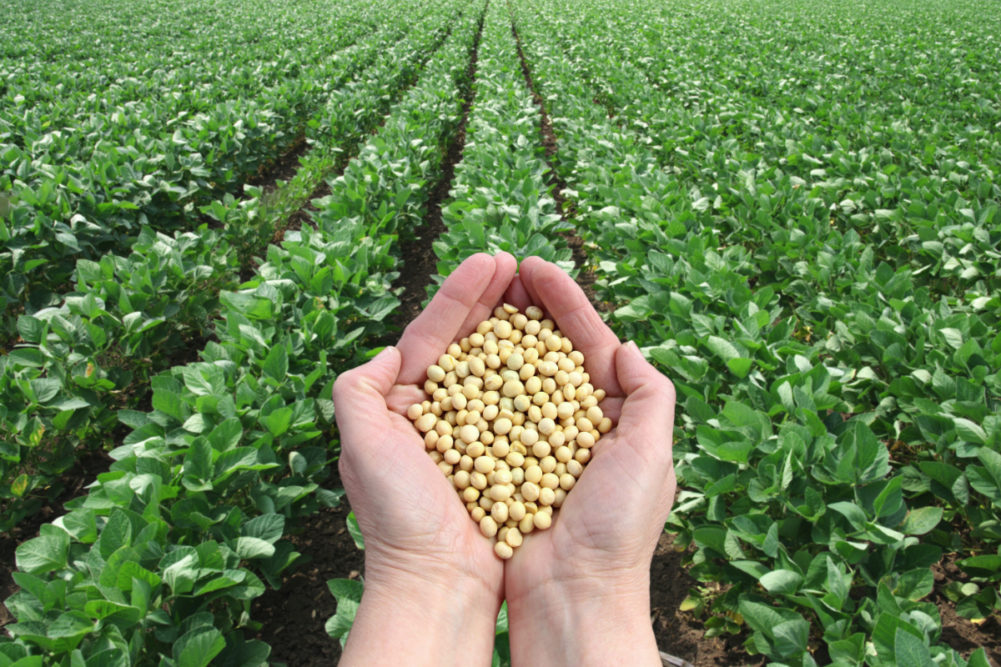ST. LOUIS, MISSOURI, US — A recently released Life Cycle Assessment (LCA) study found the US soybean industry’s global warming potential profile decreased considerably in 2021 for whole soybeans, soybean meal, and soy oil compared to previously reported findings in 2015 and 2010.
Commissioned by the United Soybean Board (USB) and the National Oilseed Processors Association (NOPA), the study assessed the main drivers of the environmental impact, including soybean cultivation and harvesting (e.g., herbicides, field operations and fertilizer), transportation, and energy usage in processing.
“USB’s mission is to create value for US soybean farmers by investing in research, education and promotion of US Soy,” said Lucas Lentsch, chief executive officer of USB. “This body of research helps farmers better assess and understand soy’s contribution to the environmental impacts throughout the lifecycle of the entire soybean value chain. Ultimately this data can competitively position our downstream products such as human foods, animal feeds, biofuels and other industrial applications.”
The LCA study, conducted by Sustainable Solutions Corp., analyzed soybean cultivation data from 454 farms across 16 states in 2020 and 2021. It also analyzed operations data (for soybean meal, crude soy oil, and refined soy oil) from 52 soybean processors and 27 soy oil refiners across 18 states in 2021. The study found that the soybean industry’s carbon footprint decreased considerably in 2021 for all US soy commodities compared to 2015, including a 19% decrease for US soybeans, a 6% decrease for soybean meal, a 22% decrease for crude soy oil and an 8% decrease for refined soy oil (from co-located processing and refineries).
“US soybean processors have committed to efficiencies across plant operations, manufacturing and transportation processes to improve environmental outcomes amid skyrocketing output,” said Kailee Tkacz Buller, president and chief executive officer, NOPA. “The findings of the study align the industry’s improvements with positive environmental outcomes, demonstrating how soy processing has succeeded and allowing us to engage in new ways to maintain that upward trajectory.”
The organizations said progress made by improving soil health and water quality, improving seed quality, changing farming practices such as decreased chemical application and implementation of no-till, and improving technologies and efficiencies at oilseed processing operations.
“The results from the LCA conducted for the United Soybean Board and National Oilseed Processors Association demonstrate what can happen when organizations prioritize stewardship and sustainable collaboration,” said Tad Radzinski, president, Sustainable Solutions Corp. “LCA is a key tool for continuous improvement through identifying and addressing key impact drivers.”



